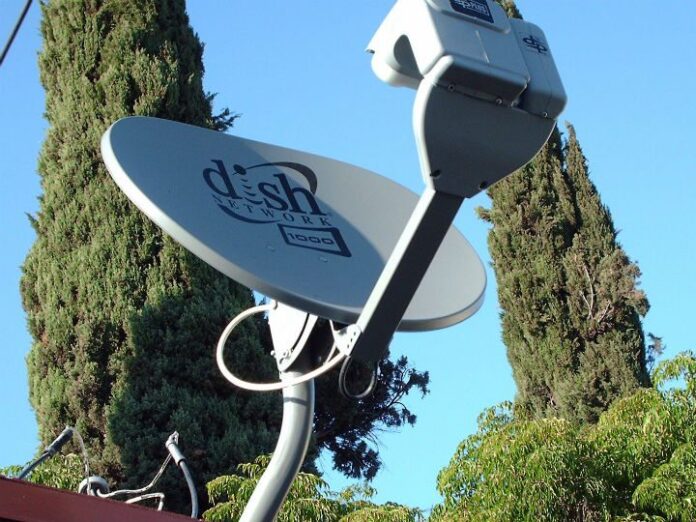Dish Network DE partners SNR and Northstar snag $3B discount
The recently completed Auction 97 proceedings witnessed a record amount of revenue generated by the federal government, highlighting the demand mobile operators place on wireless spectrum. However, the proceedings also showed that perhaps the Federal Communications Commission may need to revisit rules set up to allow smaller entities to have a fair shake at getting their hands on spectrum licenses.
Dish Network, which has annual revenue of nearly $14 billion, was able to win more than $13 billion worth of licenses, but will only be required to pay $10 billion. That $3 billion discount came through its participation in the auction through partners SNR Wireless LicenseCo and Northstar Wireless, which prior to the auction were granted designated entity status as they each reported less than $15 million in annual revenue. DE rules allow for a 15% credit for small businesses, which are those with annual gross revenue of less than $40 million for the preceding three years, and 25% for “very small business,” or those with less than $15 million in annual gross revenue.
The Wall Street Journal put together a graphic highlighting Dish Network’s relationship to Northstar, showing its tangential controlling stake behind the scenes. That chart also showed a relationship to Alaska native groups, which have been a part of the DE process for years.
Following the close of the auction, Dish Network put out a statement highlighting its participation in the process through its partners.
“As part of the auction process, we publicly filed an application to participate as a potential bidder, and Dish invested in two entities that also publicly applied to participate in the auction as designated entities,” Dish stated.
Immediately after the auction concluded, FCC Commissioner Ajit Pai put out a statement requesting that FCC Chairman Tom Wheeler begin an investigation into the DE program, noting Dish Network’s ability to participate as a DE “makes a mockery of the DE program.”
The FCC’s DE program has been a flashpoint since its inception ahead of the PCS auctions in the mid-90s. The move was initially an attempt by the FCC to inject more competition into the mobile telecom space, with a focus on minority- or woman-owned small businesses. However, established operators have used the rules to partner with entities granted DE status to get their hands on licenses for a discount, a move that had been expected since the beginning.
The FCC has attempted to curtail abuse of the DE program by setting up build-out requirements for licenses that would force operators to put spectrum to work and keep out those that may look to sit on licenses before flipping them to larger operators. Those requirements have met with limited success as license holders have found ways to meet the rules, while in actuality not offering a commercial wireless service.
Dish is currently sitting on a significant pile of wireless spectrum, most of which it is not putting to use to offer commercial wireless services. The company has reportedly been in talks for years with established operators about setting up a network partnership in order to use its spectrum holdings running across already deployed networks.
“The big question is what Dish will do with its newly acquired spectrum,” noted Stefan Zehle, CEO at Coleago Consulting. “There are roll-out obligations, i.e. the AWS-3 spectrum has to be put to use. Given the structure of the U.S. wireless industry where many cell towers and cell sites are managed by tower companies, rolling out a network is easier than in some other countries. However, at this mature stage of the mobile industry life cycle, building a mobile network from scratch is unlikely to produce a good return on investment. Perhaps Dish will enter a spectrum and network share with an incumbent operator. This operator could be T-Mobile US. Either way, the U.S. cellular industry has an interesting ride ahead as people are starting to work on the business plans and valuation for the 600 MHz spectrum auction.”
Incentive auction impact
Looking ahead, the FCC was still working through potential DE rules for its upcoming 600 MHz incentive auction, which is currently scheduled for 2016.
The commission had initially established build-out requirements that call for licensees to cover 40% of a license’s potential customer base within six years of receiving the license and 75% coverage by the end of the 12-year initial license term. Bidding credits for auction participants were also set to follow the model used in Auction 97.
However, last October, the FCC rolled out a notice of proposed rulemaking that includes potential changes to the DE rules, as well as a move to remove barriers preventing DEs from leasing spectrum to other non-DE operators.
The FCC is also looking to reclassify the financial threshold on potential DEs to provide a 35% bidding credit for businesses with average annual gross revenue not exceeding $4 million for the preceding three years; a 25% bidding credit for average annual gross revenue not exceeding $20 million for the preceding three years; and a 15% bidding credit for businesses with less than $55 million in average annual gross revenue for the preceding three years.
Commissioner Pai said he continues to oppose rules that would further alter the DE process.
“Unfortunately, the agency is currently headed in the opposite direction, having issued proposals last October that would jettison even more of the DE program’s safeguards and make it even easier for giant corporations to engage in these types of shenanigans,” Pai noted in his statement. “We must change course, and soon, by closing loopholes that allow big businesses to rip off the American people to the tune of billions of dollars. … The American people should be outraged about this. I certainly am. And I am determined to do everything in my power to stop it from happening again.”
Bored? Why not follow me on Twitter i>

